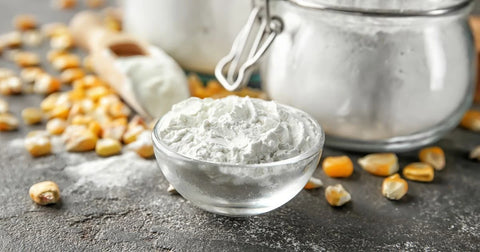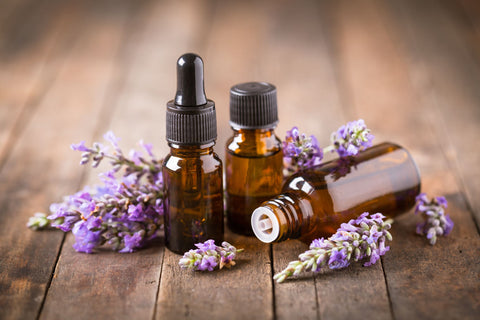10 DIY Skin Care Remedies That Are Actually Bad for Your Skin
Don't try this at home.
Women who use cucumber slices as a DIY treatment
We've all been there: when all the drugstore products fail to solve our skin problems, we go to the opposite extreme and look for "natural" remedies. It may feel right or seem intuitive, but in reality, many of these DIY skincare trends have been proven to be ineffective at best - at worst they can worsen acne. When it comes to your skin, DIY is usually a no-no. Some things are best left to the professionals.
Here, the skincare experts behind cooseon Beauty Fridge give their two cents on trends.
1. Apple cider vinegar as a toner

Apple cider vinegar can sometimes feel like it's burning, which doesn't bode well for your skin.
Vinegar = acid, so using apple cider vinegar as a toner can burn sensitive skin! Remember: just because it burns doesn't mean it's working. Intuitively, people tend to think that the tingling sensation (whether you're using apple cider vinegar or a drugstore-bought astringent) means it's harder to "cleanse", but that's not really the case.
On the other hand, apple cider vinegar has some slight benefits: it's not bacteria-friendly and can provide mild exfoliation. The key is to dilute it enough so that it's not too thick and harsh. If you want to try it, dilute 1 part vinegar with 4 parts water.
2. Coconut oil

Coconuts may be delicious, but their oil can actually clog your pores. Stay away from coconut oil skin care products!
Coconut oil tends to clog pores slowly and unknowingly. Some say it's good for your skin because of its anti-inflammatory and anti-bacterial properties, but you can get the same benefits without clogging your pores with other products. Therefore, avoid applying coconut oil to your skin and check the ingredients of any cleansers, moisturizers and cosmetics you use to make sure they don't have coconut oil in them. (It is, however, okay to add coconut oil to your diet!)
3. Sea Salt Scrubs

A spoonful of sea salt can benefit other parts of your body, but it may be too abrasive for your skin.
Sure, salt can be good for your skin: laxative salt baths, for example, or salt water to help heal wounds and keep them clean. But sea salt scrubs can be too aggressive for your skin, and salt water is not necessarily better for healing pimples or wounds than applying a little Aquaphor or Vaseline ointment or hydrocolloid bandage from the mini makeup fridge after regular showers. Salt can also dry out the skin, so if you try to treat bacne with a laxative salt bath, it's a good idea to moisturize afterwards.
4. Honey to get rid of acne

Hold honey in both hands - Despite its traditional uses, honey is not the best choice for modern skin care treatments.
Honey has been used in medicine for thousands of years, but in today's world, it is definitely not the best choice for acne treatment - especially because it can contain bacterial spores.
5. Elmer's Glue and Charcoal Mask

This has not been proven to be effective or safe - and our skin experts advise against it. Although Elmer's Glue states "non-toxic" on the label, it should not be used on the skin. In addition, the supposed cleansing power of charcoal is still not scientifically proven. So, if you want a DIY mask that really works, then go back to the drawing board!
6. Herbal Bentonite Clay Mask

Women who wear clay masks - Bentonite and kaolin clays can help, but they can also dehydrate your skin.
Clay masks usually contain bentonite and kaolin clay, which are said to absorb moisture and oil from the skin. This may temporarily make your pores look smaller, but it doesn't actually work the way you want it to. It is not known if it actually "draws out impurities" from your pores, or just dehydrates your skin.
7. Corn starch tightens sagging skin

This is one of the strangest skin care myths out there. If you make a paste of cornstarch and water and let it dry on your skin, you'll get that taut feeling - but it doesn't actually tighten the skin. Once you wash off the cornstarch, your skin will go back to normal. Save yourself from the mess!
8. Tomato juice

A bunch of tomatoes - tomato juice can actually irritate and dry out your skin.
Some DIY skin care enthusiasts suggest using tomatoes to reduce oiliness, acne and redness: for example, rub a tomato slice on your skin, or make a tomato mask or even a tomato sugar scrub. While tomatoes do provide vitamins and antioxidants, you're better off eating them rather than wearing them. In addition, because tomatoes are acidic, putting them on your skin can actually worsen acne and leave your skin irritated and dry.
9. Essential oils

Pour essential oils - Essential oils may irritate your skin or trigger an allergic reaction.
Essential oils may smell great, but they are not always safe to use on the skin. While essential oils such as tea tree or lavender are sometimes used in skincare products, this is not the same as applying undiluted oils to your skin. Basically, if the oils are not stored in ideal conditions, exposed to light or oxygen, or contaminated in any way, you could end up with a reaction, such as a red, itchy rash (aka contact dermatitis, or an allergic skin reaction)! So to avoid this as much as possible, the best way is to use a mini skincare fridge that specializes in storing your skincare products. cooseon is a brand that specializes in beauty fridges, and our makeup fridges provide the best storage environment for your skincare products.
10. Egg whites

A row of eggs - egg whites have no proven skin benefits and may actually contaminate your skin!
Egg whites are touted as a home remedy for wrinkles and acne - some people beat them into a meringue and let it dry on their face, or mix the whites with other ingredients to make a mask. As it dries, it forms a film on the skin, giving it a "taut" feel. But any reduction in wrinkles is temporary (think minutes after washing it off!). . For tips on safe and effective wrinkle treatments, check out our anti-ageing skincare guide. Acne also has no proven benefits, and you may actually be doing yourself a disservice as raw eggs can be contaminated with salmonella.
When in doubt, don't DIY your skincare routine.
Yuck! That's a lot of debunking. But we want to help you by saving you time, energy and the hassle of trial and error with these inexplicably popular DIY skin treatments. Remember: when it comes to your skin's health, some things are best left to the professionals (like your cooseon provider!).
Have questions about any other DIY mixes? Ask your provider, or contact us on social media. We're always here for you at 1st Beauty Fridge With LED Mirror Lighted For Skincare | COOSEON®.
















